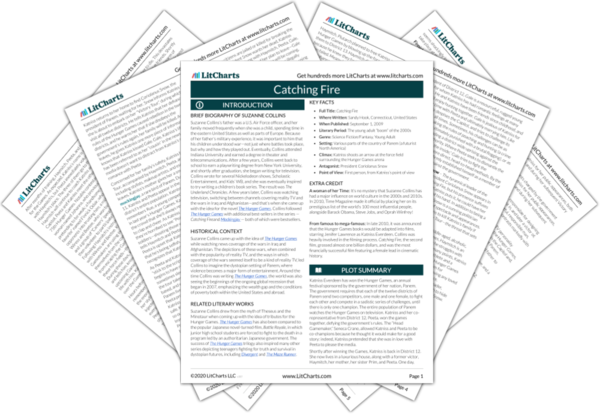Katniss tells
President Snow that she didn’t intend to start uprisings, and Snow replies that he believes her. He notes that the clothes she wore during the Games, featuring fiery colors, were oddly appropriate—her example has provided a “spark” for other Districts, which may one day become a huge flame that destroys all of Panem (the “universe” of
The Hunger Games.) Katniss asks Snow why he doesn’t just kill her. Snow calmly replies that this would only create more outrage.
